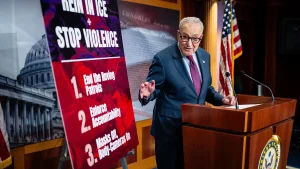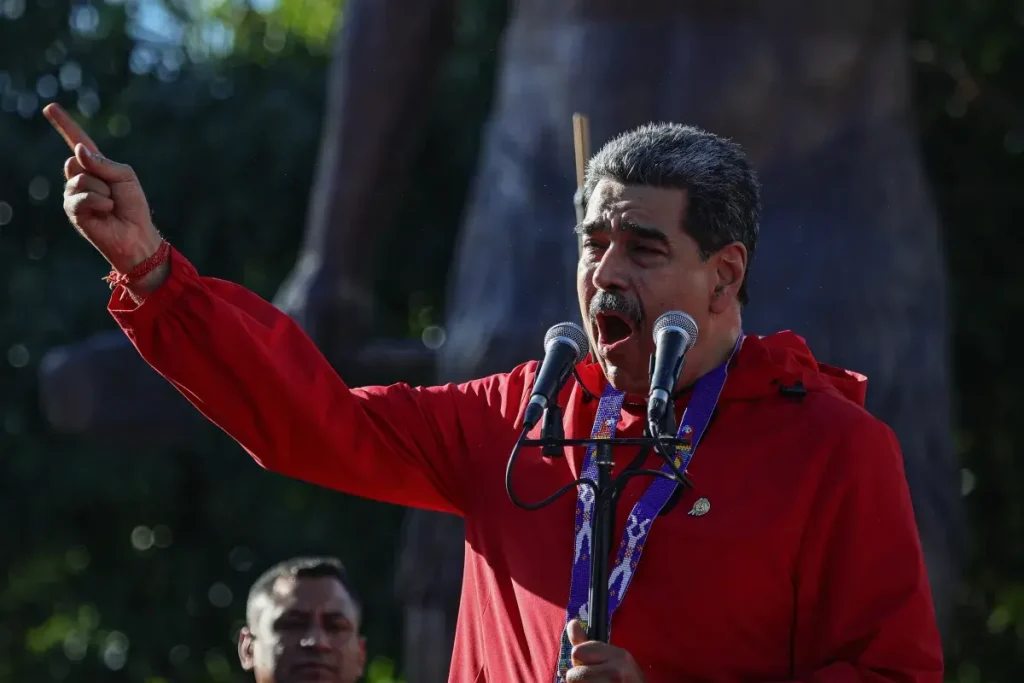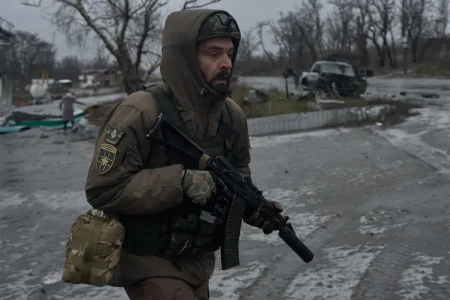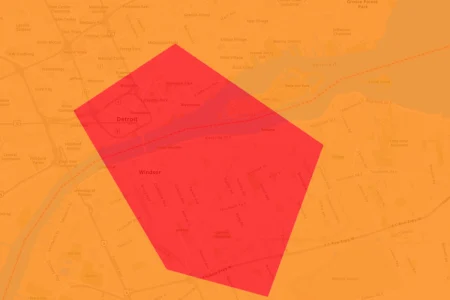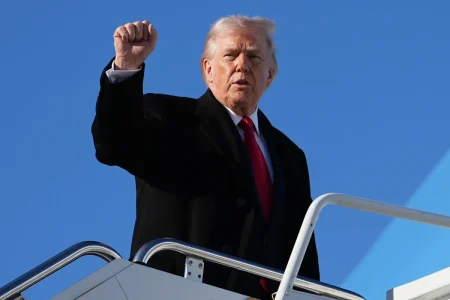Tensions Rise as US Deploys Aircraft Carrier to Venezuela’s Doorstep
In a dramatic escalation of tensions between the United States and Venezuela, President Nicolas Maduro has publicly accused Donald Trump of warmongering after the deployment of the USS Gerald R. Ford, America’s largest aircraft carrier, to the Caribbean Sea. This military buildup comes amid a series of U.S. airstrikes targeting alleged drug smuggling vessels in international waters near Venezuela’s coast. The confrontation has raised concerns about America’s intentions in the region and whether this signals a return to more interventionist policies in Latin America under Trump’s second presidency. “The people of the United States know it, they are inventing a new eternal war,” Maduro declared during an address in Caracas, claiming that the U.S. had promised to avoid further military entanglements yet was now “inventing a war” that Venezuela would resist by “mobilizing the peoples of South America.”
The military deployment represents a significant show of force, with the USS Gerald R. Ford capable of carrying up to 90 aircraft joining an already substantial American naval presence in the region. According to Pentagon officials, the U.S. has positioned eight Navy ships, a nuclear-powered submarine, and approximately 6,000 sailors and marines in Caribbean waters. This buildup follows at least ten American airstrikes against vessels that the Trump administration claims are part of drug trafficking operations linked to the Maduro regime. Most recently, U.S. Defense Secretary Pete Hegseth announced that six “narco-terrorists” had been killed in a strike on a boat allegedly operated by Tren de Aragua, a Venezuelan gang that the Trump administration has designated as a terrorist organization. The Pentagon has framed these deployments as necessary to “enhance and augment existing capabilities to disrupt narcotics trafficking and degrade and dismantle transnational criminal organizations.”
The context for this confrontation extends beyond drug trafficking concerns to questions of political legitimacy and regional influence. The United States, along with most countries, does not recognize Maduro as Venezuela’s legitimate president following contested 2024 elections that many international observers believe were fraudulent. Trump’s administration has taken a particularly hard line, suggesting potential “land action” in Venezuela and hinting at strikes on cocaine facilities inland. This approach has alarmed regional experts who see echoes of past U.S. interventionism in Latin America. Kenneth Roberts, a Latin America expert from Cornell University, noted that what makes the current situation particularly concerning is “publicly announcing the authorization of covert activities against the Maduro regime, while also pairing them with lethal military attacks on civilian boats off the Venezuelan coast for alleged involvement in drug trafficking.”
The escalating tensions have created uncertainty about how other Latin American nations will respond. Historically, countries in the region have often united in opposition to unilateral U.S. military actions. However, the current political landscape is more complicated, with significant ideological divisions between left-wing and right-wing governments across Latin America potentially undermining a coordinated response. Trump has also threatened action against Colombia, Venezuela’s neighbor, further complicating regional dynamics. These divisions may limit the effectiveness of Maduro’s call to “mobilize the peoples of South America” against what he characterizes as American aggression. At the same time, there’s genuine concern within the region about the potential for military conflict and its humanitarian consequences, particularly given Venezuela’s already severe economic crisis.
The deployment of the USS Gerald R. Ford—a nuclear-powered supercarrier representing the pinnacle of American naval power—sends a particularly strong signal about U.S. intentions. While the Pentagon maintains that the carrier’s mission relates to counter-narcotics operations, military analysts note that such a powerful asset would typically be considered excessive for anti-drug trafficking missions alone. This has fueled speculation about whether the Trump administration is contemplating more direct action against the Maduro government, possibly including strikes within Venezuelan territory or support for regime change. Trump’s own comments suggesting potential “land action” have only intensified these concerns. The situation has created regional jitters about whether the carrier’s deployment precedes a move to topple Maduro, which would represent a significant shift in U.S. foreign policy toward more direct interventionism.
As tensions continue to mount, the international community watches closely to see whether this military posturing will lead to further confrontation or serve primarily as leverage in a broader geopolitical strategy. The situation highlights the complex intersection of drug policy, political legitimacy contests, and regional power dynamics at play in U.S.-Venezuela relations. For everyday Venezuelans, already struggling with economic hardship, hyperinflation, and political instability, the prospect of becoming caught in an international confrontation adds another layer of uncertainty to their daily lives. Meanwhile, the Biden administration faces difficult questions about how to approach Venezuela policy as it prepares for the transition, with Trump’s aggressive stance potentially limiting diplomatic options moving forward. Whether this crisis represents a temporary escalation or the beginning of a more sustained conflict remains to be seen, but it clearly signals a new chapter in America’s approach to Venezuela and potentially to Latin America as a whole.
